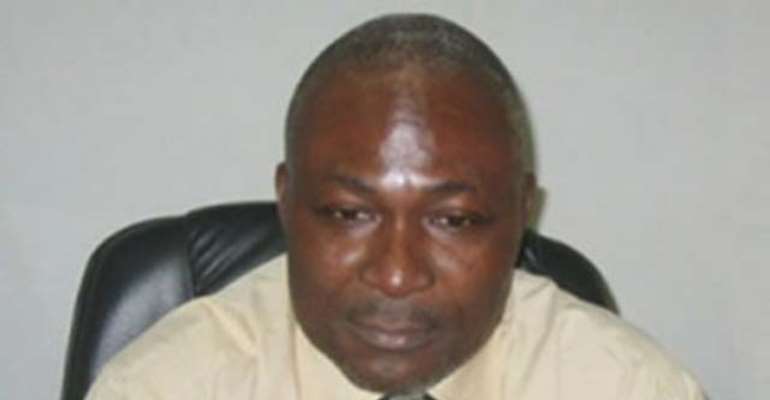Revving up the privatisation plan – Punch

The renewed move by the Bureau of Public Enterprises to privatise some airports and other State-Owned Enterprises is long overdue. That many commercial ventures remain in government's hands reflects the signal lack of political will by successive administrations to follow through on beneficial development plans. President Goodluck Jonathan should break with the past by ensuring that all remaining publicly-owned commercial ventures are transparently privatised in the next few months.
Vice-President Namadi Sambo, who, by law, heads the National Council on Privatisation, will have no excuse if the SOEs listed for sale by the BPE are not offloaded. Both he and Jonathan have wasted their first term, holding on to downstream oil and gas assets, mines, airports, ports and bricks factories. What should have been their landmark success - privatisation of power assets - has been bungled through corruption and cronyism and the nation is groaning in darkness and 'crazy' electricity bills as a result.
The plan to privatise airports and other state enterprises was first mooted in 1986 and concretised via a decree in 1988, but later amended by law in 1993 and in 1999. But this programme has been implemented in fits and starts. Speaking at the just-concluded Abuja trade fair, BPE's Director-General, Benjamin Dikki, said it would seek NCP's and Presidential approval to begin the process of privatising the Nnamdi Azikiwe International Airport and others. He also spoke of plans to sell coal blocks, non-core assets of the Nigerian Railway Corporation and the Nigerian Coal Corporation, burnt bricks factories in Maiduguri and Naraguta, and undertake the concession of river channels.
Rather than outright sale of the airports, however, he said a private sector operator would manage the NAIA 'for 15 or 20 years,' while arrangements would be made for the establishment of some regulatory agencies.
Nothing in his presentation inspires confidence. Unlike the sure-footedness of BPE under Nasir el-Rufai, when many SOEs were offloaded, Dikki confessed that the agency had not yet developed a timeline for the airports concessions, saying only that it would 'soon commence a six-month due diligence on the airports.' It is surprising that he is only just set to doing that when, apart from the badly handled power sector privatisations, the privatisation programme has slowed down. The never-ending sale of NITEL that started in 2001 has again attracted an acrimonious law suit. That he is yet to have a concrete plan and timelines for the NCP and the President to endorse two years after he took over BPE suggests lethargy and lack of passion at this once vibrant agency.
But perhaps Dikki and his team are reading the body language of their bosses. Neither Jonathan nor Sambo has ever demonstrated great enthusiasm for privatisation beyond unconvincing rhetoric. Their refusal to privatise the nation's four petroleum refineries is costing the country billions of dollars on imports of refined products and almost N2 trillion in annual subsidies, as recently revealed by Joseph Dawha, Group Managing Director of the Nigerian National Petroleum Corporation.
But studies by the International Monetary Fund have proved that SOEs are often wasteful, inefficient and act as a brake on job creation and innovation, even in developed economies. In Nigeria, especially, state ownership of enterprises has been an unmitigated disaster. By 1991, according to the TCPC, the forerunner of BPE, there were about 1,000 government enterprises in which the Vision 2010 Committee said had received $100 billion investment by 1998. The defunct Technical Committee on Privatisation said government spent another N265 billion on them by way of subsidised forex, waivers, tax exemptions, unremitted revenue, loan guarantees, grants and subventions in 1998 alone! Even more has been wasted since then. Typical is the case of the comatose Ajaokuta Steel Company that, according to the Chairman of the Asset Management Company, Kola Belgore, spends N3.4 billion each month paying idle workers.
Tying every economic policy to the targets of job-creation and productivity will help our government appreciate the value of transparent privatisation accompanied by liberalisation - the formulation of regulatory framework that enhances competition.
We need not reinvent the wheel: privatisation is a time-tested device that gained added global impetus in the 1980s, driven by the zeal of Britain's Margaret Thatcher and America's Ronald Reagan. The established ideological underpinning is that the only role of government is to provide an enabling environment for entrepreneurship to flourish, while government gains through taxes, and the economy, through increased competition that creates jobs, enhances productivity, innovation and wealth creation. In Nigeria where even monopolies inevitably fail woefully, all we need do is leverage on the successes of others and avoid ours' and others' mistakes.
Malaysia's privatisation began in 1983 and is credited with increasing the role of the private sector in the economy. A wave of privatisations in 1980s and 1990s brought revenue that totalled six per cent of GDP in 18 Latin American countries, while private investment in infrastructure there between 1990 and 2001 was $350 billion. Massive privatisation followed the collapse of communism in Eastern and Central Europe in the 1990s and countries like Poland, Czech Republic and Hungary are today successful free market economies.
Dikki has loads of sectoral master plans drawn up by his predecessors to draw from: he should bring out realistic timelines for their implementation. The major pitfalls in past sales have been lack of transparency, cronyism and lack of political will to see privatisation through. The culture of corruption and impunity also encourage the government to keep SOEs for milking even when policies have been approved to sell them.
Jonathan and Sambo should lead efforts to repeal inhibitive laws, work with the National Assembly to pass the necessary laws to liberalise the economy and muster strong political will to quickly drive privatisation.
